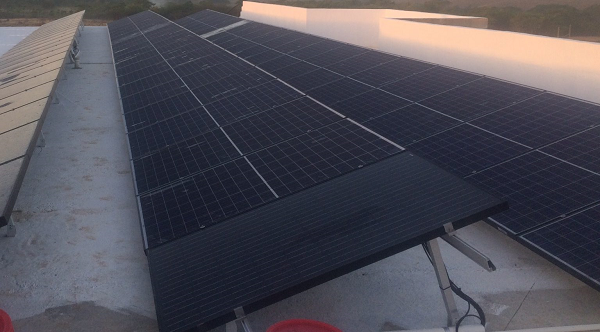Bill proposes federal boost to community solar

Community solar in America is growing at an unprecedented rate across the country. New legislation recently proposed in the U.S. Senate could help it grow more quickly. Senators Michael Bennet and Martin Heinrich introduced the Community Solar Consumer Choice Act of 2017 (referred to as S1670).
The bill would make permanent the current Consumer Solar Market Pathways program. As Sen. Bennet, one of the bill’s sponsors, has noted, the federal government is “the largest employer and consumer in America”. The government has already gained substantial expertise in community solar, which it has shared on a provisional basis under the Pathways program and can now share permanently if the bill becomes law.
“Giving the program permanent legislative status within the DOE is important for operational and budgetary reasons,” said Dan Whitten, Vice President of Communications for the Solar Energy Industries Association (SEIA). “Having only temporary status as a federal government program makes it more vulnerable to budget cuts, either by the Administration or the Congress. As a permanent program, authorized in law, the program will not need to fight for its continued existence each year and can instead focus on carrying out its responsibilities.” In addition, Whitten noted, no additional taxpayer funds would be required to establish the program since it already exists.
Whitten described the specific ways in which the Department of Energy (DOE) furnishes assistance to local community solar programs and, under the new law, would continue to do so, perhaps on a wider scale:
- Provides technical assistance for communities establishing solar programs;
- Helps develop innovative financial and business models, in order to leverage competition in the marketplace; and
- Instructs the national laboratories (e.g., the National Renewable Energy Lab) to gather and disseminate data to encourage community solar development.
“The federal government can provide much needed technical assistance and access to a national data base of information, and share ‘best practices’ from across the nation,” Witten said.
Jeff Cramer, the Executive Director of the Coalition for Community Solar Access (CCSA), in this article, claims “having the very credit-worthy federal government as an anchor tenant in a project… can make the project more affordable for others.”
Congress will soon consider comprehensive energy legislation. Witten said that it is likely the community solar bill will be attached to this legislation as an amendment. This may give it a better chance of passing than it would as a stand-alone bill.
“We strongly support this effort to ensure that more Americans have access to clean, affordable, reliable solar energy,” said Abigail Ross Hopper, president and CEO of SEIA. “This federal legislation will help improve the ability of state, local and tribal government to utilize these important community solar projects to the benefit of all energy consumers.”
